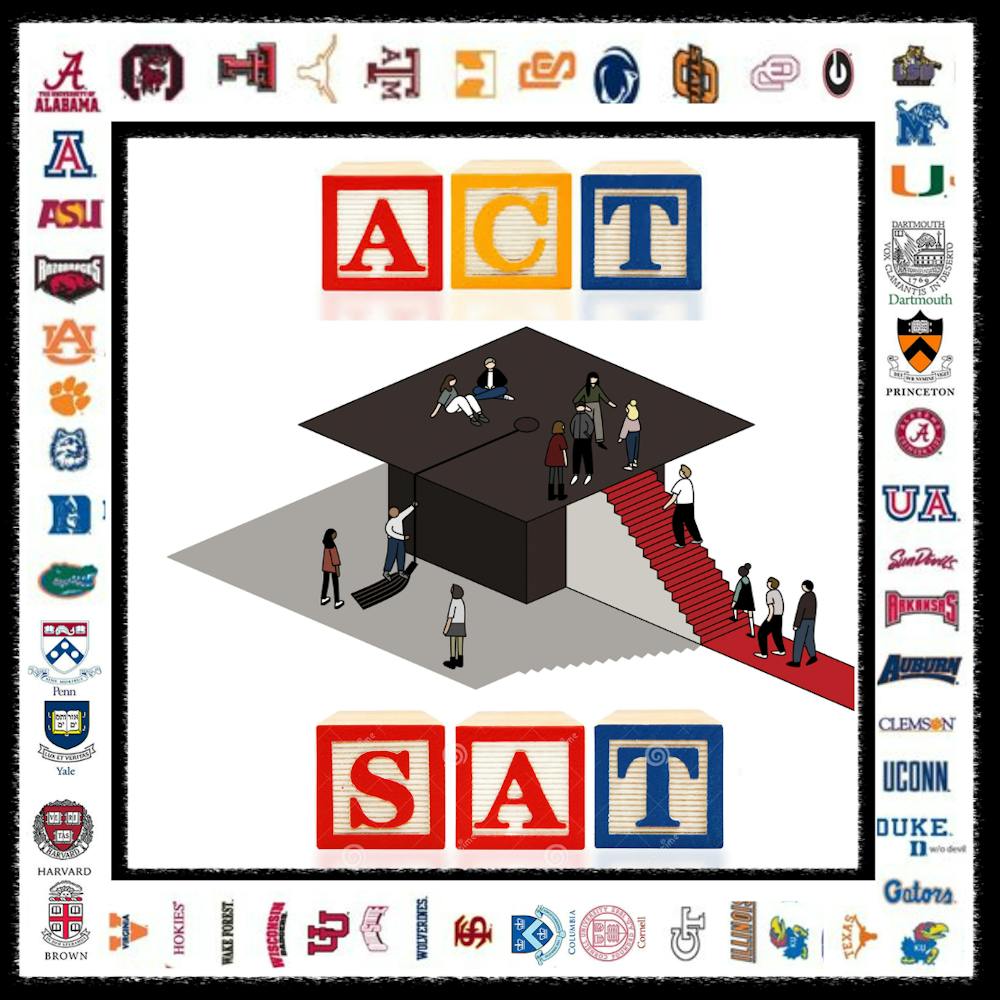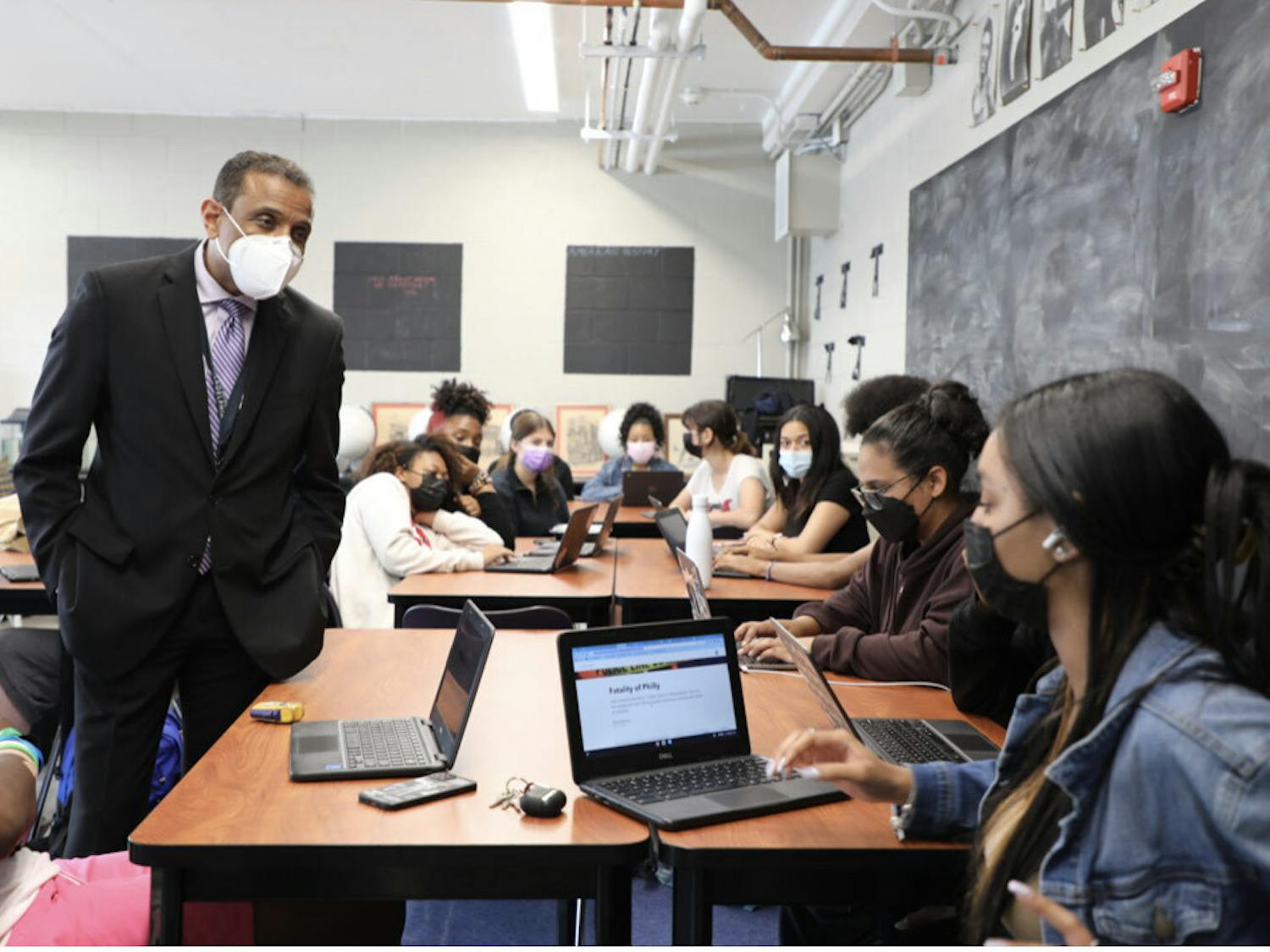I hate studying for the SATs, I hate taking the test, and I hate talking about it. But, far more, I hate the idea of getting rid of it.
The concept of standardized testing began in the early 1900s and since then has been an integral part of college admissions. Initially developed for measuring intelligence in military tests, eventually, standardized tests developed into tests that tested college readiness. The pandemic hastened a test-optional movement, however, some colleges like MIT opted to reinstate it, declaring: “We believe a requirement is more equitable and transparent than a test-optional policy.”
However, since 2021 more than two-thirds of U.S. universities have declared themselves “test-optional.” In the name of helping students, loud cries to opt out of standardized tests are gaining more ground and putting pressure on universities.
Standardized testing is being made optional largely on the basis that it disadvantaged underprivileged and minority students. Often the public schools they attend do not prepare them for standardized testing and the lack of resources like tutoring plays a disadvantage. However, a study by the University of California found that the inclusion of test results helps identify many talented Latino, Black, and low-income students who otherwise might be rejected because their high school grades alone were not good enough. Additionally, it found that if testing requirements were eliminated, it would deny automatic admission to 40 % of African American students and more than 25 % of low-income and first-generation students admitted to UCs today. Hence testing scores serve as a medium for underprivileged and minority students to boost the academic side of their applications.
Consequently, the lack of standardized testing is leaving millions of American students unprepared for college. Contrary to the widespread perceptions, according to a study by the University of Chicago, standardized tests have proved to be better detectors of college success. They also add an objective dimension to the purely subjective application consisting of essays, teacher recommendations, and extracurriculars. Removing standardized testing from the admissions process will make an already opaque and arbitrary process even less transparent.
According to admissions officials, as the competition to get into colleges increases, students are more likely to exaggerate and lie on applications. Sally Goebel, an admission officer at the University of Pennsylvania, explained that very little is done in the way of fact-checking, and on the few occasions officials do catch outright lies, but by chance. Essays are not routinely put through plagiarism checkers and instead rely on the intuition of the admissions council. Keeping standardized testing mandatory provides another dimension to detect potential cheating in discrepancies between test scores and essays.
In conjunction with that, as Jefferey Selingo, author of Who Gets in and Why, writes, “the two tests [the SAT and ACT] are problematic, the other criteria are even murkier.” For example, GPA scales vary across schools, states, and countries. Equalizing them or converting them still lack accuracy, and hence standardized tests serve as a leveled field to compare and judge a student’s academic ability.
Often students complain about the difficulty of the tests, but more or less, they contain what has been taught throughout high school. Reading, grammar, and math are essential lifelong skills, and getting rid of standardized testing decreases academic performance. Larry S. Su, a professor at the City Colleges of Chicago, argues that standardized testing has real-world utility: skills like problem-solving, emotional management, and resilience are attained through these tests. Su believes these tests will eventually define the workforce of the U.S. In the recent results of the Program for International Student Assessment (PISA), the U.S. placed an unimpressive 38th out of 71 countries in math and 24th in science.
Stephen Burd, an education policy analyst, explains that going test-optional "allows schools to reject more students." And that, he says, makes them look more selective in the college rankings put out each year by U.S. News & World Report. Additionally, only those with high scores tend to submit them to the university, inflating the average score of accepted applicants. However, the advantage is small: acceptance rate accounts for just 1.5 percent of its overall rank.
Although standardized testing has its benefits, one major group of students is at a genuine disadvantage from it. It is unfair for those diagnosed with ADHD, dyslexia, anxiety, or other learning disabilities to take tests under strict time conditions. However, these students can either be exempted from the test or gain privileges at the discretion of academic experts.
Countries around the world follow standardized test systems, and the U.S. needs to learn and adopt these educational policies and practices. Japan has a National Center Test, South Korea a college scholastic ability test, and Finland the Finnish Matriculation Examination. Countries like India have entrance exams for each college instead of a standardized system, however, this has its drawback. Unlike standardized tests, entrance exams offer only one attempt to decide the fate of students.
Granted, standardized tests like the SATs and ACTs are not perfect, and they were never intended as the sole criterion to admit students. They are used as an objective addition to the application, enabling admissions officers to look at several data points.
Enjoy what you're reading?
Signup for our newsletter
The root reason for eliminating standardized testing maps back to the American public school system – public schools fail poor students. Social inequality should be addressed, however, education should not be a victim to do this.




